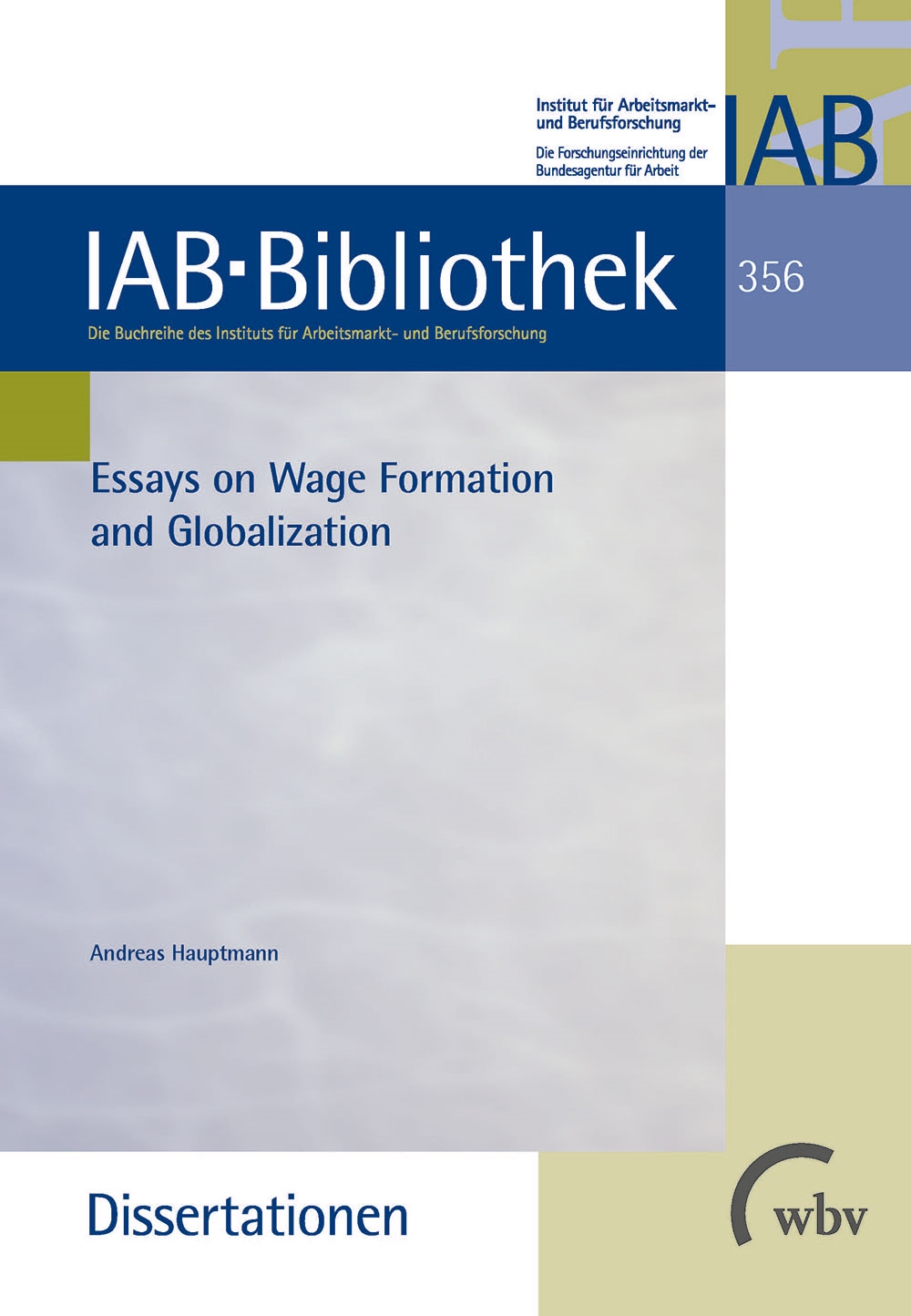Essays on Wage Formation and Globalization
Introduction
Chapter 2
Endogenous wage regime selection: A general equilibrium model
2.1 Introduction
2.2 Collective bargaining regimes in Germany
2.3 The model
2.4 Partial equilibrium
2.5 General equilibrium
2.6 Discussion of the results
2.7 Conclusion
Appendix
2.A Detailed derivations of Section 2.3
2.B Detailed derivations of Section 2.4
2.C Detailed derivations of Section 2.5
Chapter 3
Collective bargaining in exporting firms
3.1 Introduction
3.2 Data
3.3 Empirical strategy
3.4 Regression results
3.5 Conclusion
Appendix
3.A Details on the calculation of profitability measures
3.B Summary statistics
3.C Further results and robustness checks
3.D Detailed regression output tables
Chapter 4
International trade and the fair wage premium
4.1 Introduction
4.2 Econometric specification and data
4.3 Main results
4.4 Conclusion
Appendix
4.A Detailed estimation results of Table 4.1
Chapter 5
Wages, competitiveness and exports
5.1 Introduction
5.2 Data and first descriptives
5.3 Empirical strategy
5.4 Results
5.5 Conclusion
Appendix
5.A IAB establishment panel
Chapter 6
Concluding remarks
weitere Infos
In seiner Dissertation 'Essays on Wage Formation and Globalization' analysiert Andreas Hauptmann Aspekte der Lohnbildung im Zusammenhang mit dem Thema Globalisierung. Zahlen Exportfirmen höhere Löhne als Firmen, die nicht exportieren? Inwieweit bestimmen institutionelle Rahmenbedingungen die Lohnentwicklungsprozesse in exportstarken Branchen? Welche Zusammenhänge bestehen zwischen den Lohnstückkosten und der Exportstärke von Unternehmen? In vier englischsprachigen Essays legt der Autor dar, dass zwischen Löhnen, Globalisierung und institutionellen Kontextfaktoren vielfältige Wechselwirkungen bestehen.
Grundlage der Untersuchung sind unter anderen die Linked-Employer-Employee-Daten (LIAB) und das Betriebspanel des Instituts für Arbeitsmarkt und Berufsforschung (IAB).
